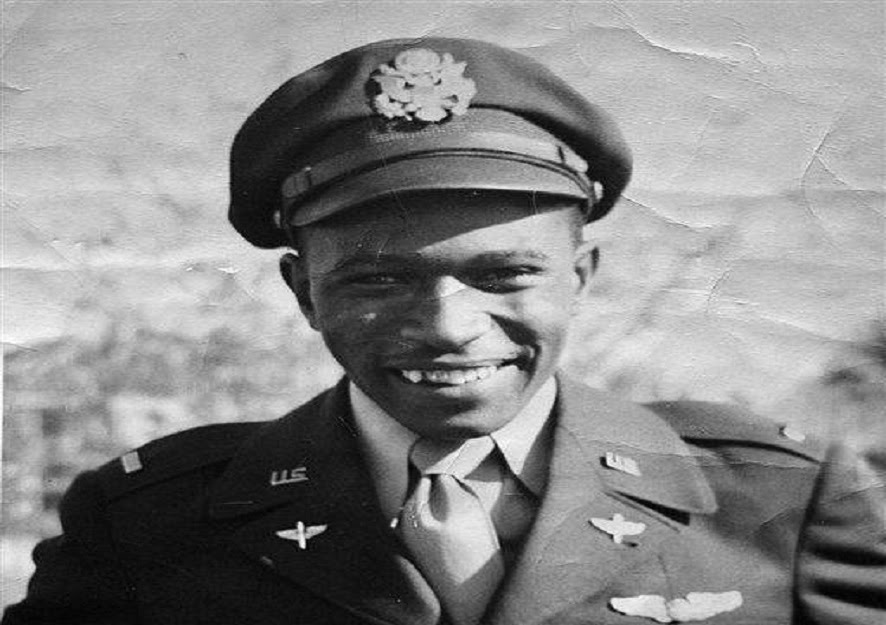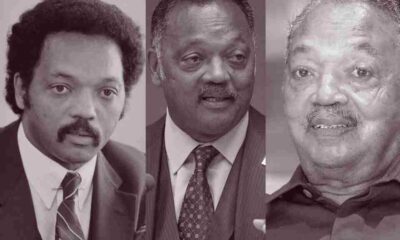Black Excellence
Stewart Fulbright, Tuskegee Airman and business school dean, dies at 92
Stewart Fulbright, a trailblazing black educator who piloted a bomber during World War II as one of the Tuskegee Airmen and later served as the first dean of the North Carolina Central University School of Business, has died, He was 92.

Durham, N.C. — Stewart Fulbright, a pioneering Black educator and World War II bomber pilot who served as one of the Tuskegee Airmen before becoming the first dean of the North Carolina Central University School of Business, has died.
He was 92.
His son, Edward Fulbright, said he died in Durham, N.C., on New Year’s Day after a short illness. A funeral is scheduled for Saturday at Covenant Presbyterian Church.
A Life of Service and Firsts
Born in Springfield, Mo., in 1919, Fulbright enlisted in the Army Air Corps in 1943. He was among roughly 1,000 men trained in Tuskegee, Ala., as the first Black pilots, navigators, and bombardiers in U.S. military history. Their training and combat performance broke racial barriers and helped reshape the nation’s armed forces.
After the war, Fulbright joined North Carolina Central University in 1947. He spent 35 years at the institution, rising through the ranks and becoming the first dean of the School of Business in 1972. He retired in 1982, leaving behind a legacy of academic leadership and mentorship.
The Legacy of the Tuskegee Airmen
The Tuskegee Airmen were the first Black military aviators in the U.S. Army Air Corps, the precursor to the U.S. Air Force. Trained at the Tuskegee Army Air Field in Alabama, they flew more than 15,000 sorties across Europe and North Africa during World War II. Their performance earned them more than 150 Distinguished Flying Crosses and helped push the U.S. military toward integration.
Their achievements came despite widespread racist beliefs that Black pilots could not operate advanced aircraft. In the years leading up to the war, African Americans faced steep barriers to aviation training. President Franklin D. Roosevelt’s expansion of the civilian pilot training program in 1938 opened the door for Black trainees, but segregation remained deeply entrenched in the armed forces.
The Tuskegee Airmen’s success challenged those prejudices and reshaped public perception of Black servicemen.
Remembering Tuskegee Airman Stewart Fulbright
Fulbright’s life bridged two eras, one defined by segregation and another shaped by the slow but steady expansion of opportunity. As a bomber pilot, educator, and dean, he helped open doors for future generations.
His contributions endure at NCCU, within the history of the Tuskegee Airmen, and in the lives of the students and colleagues he inspired.
Real stories. Real impact. Straight to your inbox. Join thousands others. Click here to subscribe to our newsletter today!
-

 Black and Missing1 week ago
Black and Missing1 week agoMissing New Jersey teen found deceased
-

 Community1 week ago
Community1 week agoGoFundMe launched to support children after Mississippi mother’s fatal battle with cancer
-

 Community1 week ago
Community1 week agoGrambling State Quarterback C’zavian Teasett creates GoFundMe as he recovers from spinal cord injury
-

 In Memoriam5 days ago
In Memoriam5 days agoFuneral arrangements announced for Rev. Jesse Jackson Sr.
-

 Education1 week ago
Education1 week agoFormer NFL Player turned Maryland history teacher Tre’ Johnson dies at 54
-

 Crime & Justice4 days ago
Crime & Justice4 days agoFamily remembers Georgia teacher, mother killed when driver fleeing ICE crashed into her car; GoFundMe launched
-

 Real Voices4 days ago
Real Voices4 days agoGoFundMe launched for missing 21-year-old man found dead, hanging from tree in Atlanta park
-

 Real Voices1 week ago
Real Voices1 week agoGeorgia man killed by train remembered as a hero after saving friend
























